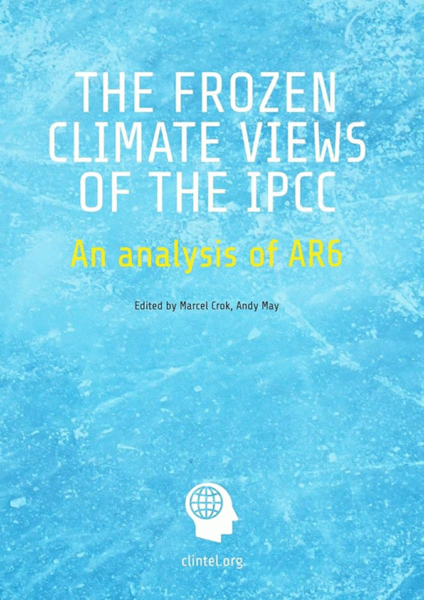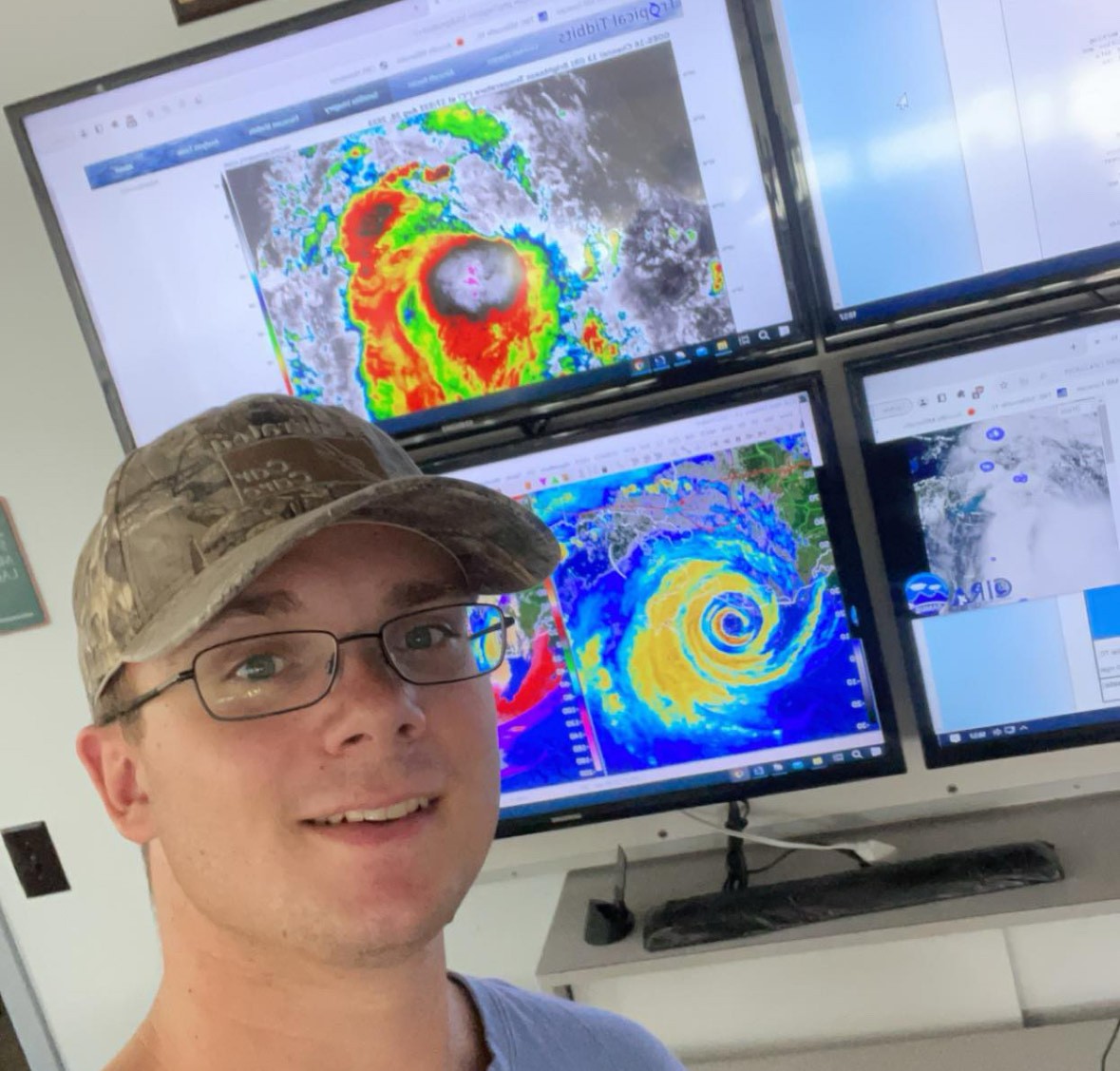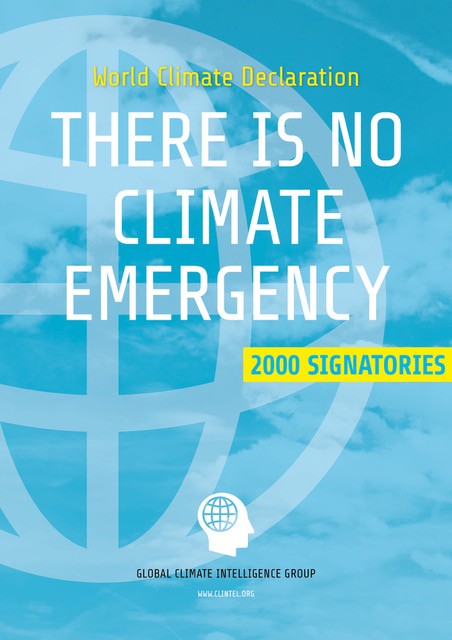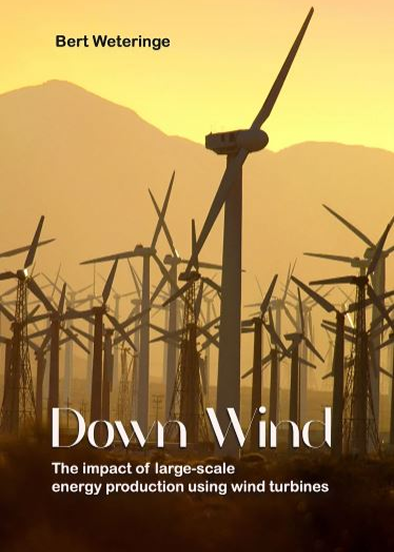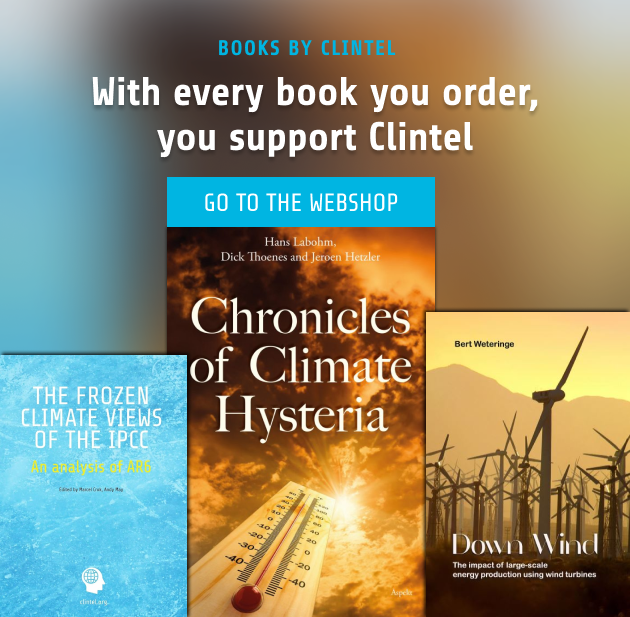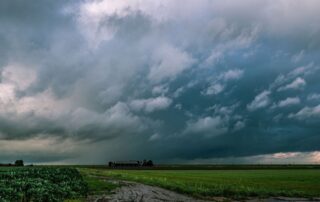Chris Martz 2000th signatory of the World Climate Declaration
An Interview with Chris Martz
The World Climate Declaration (WCD), initiated by the Clintel Foundation, has reached a significant milestone with its 2000th signatory. The declaration, which asserts that “there is no climate emergency”, has garnered support from a diverse group of (climate) scientists and experts worldwide, including Nobel Prize laureates Ivar Giaever and John Clauser. If you would like to sign the declaration as well, please fill in the form here.
Among the latest (number 2000) to join this prestigious list is Chris Martz, a young meteorologist known for his outspoken views on climate science through his influential presence on the social media platform X. Although he is only 22 years old, he already has more than 140,000 followers on X.
In an exclusive interview, Clintel discussed Martz’s journey, his mentors, his perspectives on climate policy under the current U.S. administration, his work with the Committee for a Constructive Tomorrow (CFACT), and why he aligns with the WCD’s core message.
Jealous peers
Chris Martz has built a substantial following on X with a viral post (a must read in which Martz explains his journey) garnering 30,000 likes and more than 2.5 million views. His candid posts challenging mainstream climate narratives have made him a polarizing figure (the New York Post called him the Anti Greta Thunberg), particularly among peers during his undergraduate years at Millersville University. “My first three years were great,” Martz recalls, noting that many upperclassmen shared his views. However, his senior year was marked by isolation as his growing online fame sparked jealousy among classmates. “Some people got jealous because I was mentioned on Fox News or hanging out with celebrities like Larry the Cable Guy or Dean Cain,” he says, emphasizing that he remains grounded despite the attention. “I’m just a small-town Virginia boy.” Martz found strong support though from his professors. “Out of six meteorology professors, four had my back,” he says. They defended his right to free speech and appreciated his data-driven approach, even when they disagreed. “They said, ‘Chris brings receipts to back up his statements.’ We could at worst agree to disagree.” This support from faculty contrasted sharply with the mixed reception from his peers, highlighting the challenges of being a young skeptic in academia.
Mentors who shaped his perspective
Martz credits several key figures for shaping his approach to climate science. “Joe Bastardi and Tony Heller really opened my eyes,” he says, recalling how their discussions of historical weather events, like the 1900 Galveston hurricane and 1930s heatwaves, challenged the narrative of unprecedented climate crises. Judith Curry, a prominent climate scientist, inspired him with her clear communication style, while Roy Spencer and John Christy influenced his rigorous, data-driven methodology. “John Christy is one of the few who builds datasets from scratch and tests them against theory,” Martz notes, a practice he emulates in his own research. Additionally, professors like Dr. Alex DeCaria at Millersville, despite differing views, taught him to think independently and critically, a cornerstone of his scientific approach.
Climate policy under Trump
Martz observes significant shifts in U.S. climate policy under President Trump’s second term. “They’ve been very hard-hitting against the climate alarmism narrative,” he says, pointing to key appointments like Chris Wright as Energy Secretary. Wright, a vocal critic of climate alarmism, supports nuclear power and domestic energy production, aligning with Martz’s views on energy efficiency. The Environmental Protection Agency (EPA), led by Lee Zeldin, has undergone major changes, including the dismissal of over a thousand employees and the elimination of its science division. Terms like “environmental justice” and “climate justice” have been removed from federal websites, and the NOAA climate.gov domain has been shut down.
Martz also notes the termination of NASA’s Goddard Institute for Space Studies’ lease at Columbia University, potentially signaling its closure. “NASA’s messaging is very activist and alarmist compared to NOAA’s more balanced tone,” he says. While he supports cuts to climate research funding, Martz expresses concern about reductions to NOAA’s weather forecasting, which he believes is critical for public safety. Overall, he sees these changes as a push to dismantle what he calls “climate ideology” in federal institutions.
Work at CFACT
Despite his young age, Martz is already working for CFACT. As a part-time contractor, Martz’s role is multifaceted, involving research, media appearances, and social media engagement. “Some weeks I work ten hours, others thirty or forty,” he says, describing his flexible schedule as he prepares for graduate school. His tasks include writing monthly fact-checks debunking climate claims, contributing to reports, and conducting research, such as a current project on the limitations of climate models for policymaking. His media presence extends to outlets like Newsmax, One America News, and Fox, where he discusses climate and energy issues.
Why there is no climate emergency
Martz aligns with the WCD’s assertion that there is no climate emergency, offering three key arguments. First, he highlights the unprecedented quality of life today, with life expectancy doubling, poverty and malnutrition at record lows, and a 96.2% decrease in weather-related deaths despite population growth. “Claims of an existential crisis don’t hold up,” he says. Second, he argues that extreme weather events have not become more frequent or intense, citing stable or even declining trends in hurricanes, floods and other extreme weather phenomena when viewed over long timescales. Finally, he addresses sea level rise, noting its slow rate of about 3.4 millimeters per year, which he deems manageable through adaptation. “We have the technology to adapt to almost anything on the climate front,” he asserts, pointing to successful examples like advanced sea walls in Europe.
Growing momentum
Chris Martz’s addition as the 2000th signatory of the World Climate Declaration underscores the growing momentum of scientists challenging the mainstream climate narrative. His journey from a young, small-town meteorologist to a prominent voice on X reflects both the opportunities and challenges of advocating for a data-driven perspective in a polarized field. With mentors like Judith Curry and John Christy guiding him, and a platform at CFACT to amplify his voice, Martz is poised to continue influencing the climate debate as he pursues his graduate studies in atmospheric science. His arguments against a climate emergency, rooted in historical data and practical adaptation, resonate with the WCD’s mission to foster open scientific discourse. As Martz puts it, “The data is the data. I just try to present an honest, balanced approach.”
more news
Climate change computer projections are manifestly false and dangerously misleading ( Cloned )
The alleged threat to the planet from human caused climate change has been at the forefront of Australian politics over the recent half century. Every year, just before meetings of the UN Conference of the Parties (COP) to the Climate Change Convention, slight increases in atmospheric carbon dioxide and global temperature are portrayed in the media as harbingers of future doom. Every extreme weather event is made out to be an ill omen of what is to come unless fossil fuels are eliminated.
Glacier fluctuations don’t yet support recent anthropogenic warming
Holocene glacier records show that glaciers worldwide reached their greatest extent during the Little Ice Age and were generally smaller during earlier warm periods. While glacier length is a valuable long-term regional climate indicator, the evidence does not clearly support the idea of uniform, synchronous global warming.
Challenges to the CO2 Global Warming Hypothesis: (13) Global Warming Entirely from Declining Planetary Albedo
Is the recent warming the result of less reflection of sunlight by the Earth? Two researcher state that declining albedo — not CO₂ — dominates the temperature trend.
